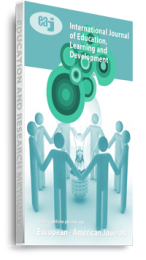Using the convenient sampling technique, 250 teachers from the GES (N=218) were used to assess Qi levels. The findings showed significant differences in Ideal Qi and Actual Qi scores, but showed no significant variations among groups [F(1, 218)=1.517, p=.219]. The significant difference was found among the intercept of gender and teaching experiences [F(1, 75)= .596, p= .957)] therefore the alternative hypothesis rejected. Recommendations include the adoption of Qi model by the GES/ Teacher Education Division in Pre-service and In-service training of teachers. Teacher performance assessment should include the assessment of Qi levels and should lead to certification and partly based on evidence of such C21st multiple intelligence. Again, Qi model should be given serious consideration in policy decisions and scholarship. The study contributes to a new paradigm in skills set for teacher education and professional development. These skills set includes but not limited to social, emotional, strategic, and entrepreneurial intelligences.
Keywords: Emotional Intelligence, Entrepreneurship, Primal Teacher Leadership (PTL), Quadrant Intelligence (QI) Model, Social Intelligence, Strategic Thinking

